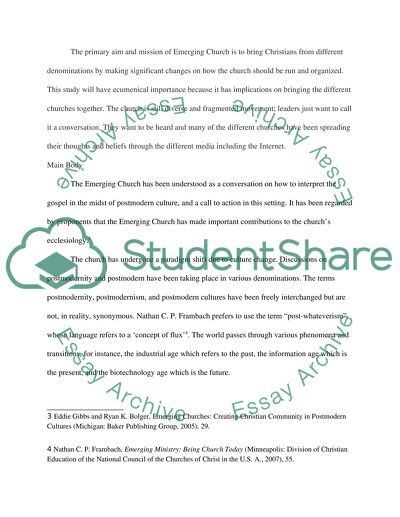Cite this document
(“The Theology of the Emerging Church Research Paper”, n.d.)
Retrieved from https://studentshare.org/religion-and-theology/1401638-the-theology-of-the-emerging-church
Retrieved from https://studentshare.org/religion-and-theology/1401638-the-theology-of-the-emerging-church
(The Theology of the Emerging Church Research Paper)
https://studentshare.org/religion-and-theology/1401638-the-theology-of-the-emerging-church.
https://studentshare.org/religion-and-theology/1401638-the-theology-of-the-emerging-church.
“The Theology of the Emerging Church Research Paper”, n.d. https://studentshare.org/religion-and-theology/1401638-the-theology-of-the-emerging-church.


